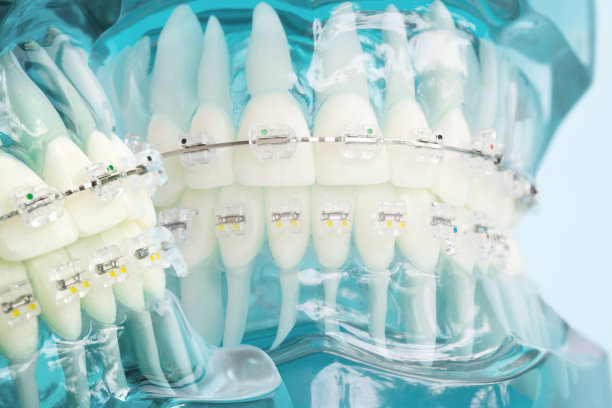Summary: Dental fillings are a common yet important procedure in oral health care, aimed at restoring damaged teeth and preventing further decay. This article provides essential tips and precautions to ensure a successful dental filling experience, which can significantly affect your overall oral health. It covers four primary aspects: understanding the procedure, preparing for the appointment, aftercare practices, and when to seek professional advice. Following these guidelines can help minimize anxiety, maximize comfort, and lead to optimal outcomes for your dental fillings.
1. Understanding the Dental Filling Procedure

Before undergoing a dental filling, it is crucial to understand what the procedure entails. Generally, a dentist will remove decayed parts of the tooth, clean the area, and then fill it with a suitable material. There are various options for filling materials including amalgam, composite resins, and gold. Each has its pros and cons, and discussing these with your dentist can help you make an informed choice.
In addition to the types of materials used, knowing about the anesthesia options can relieve anxiety. Most dental procedures include the use of local anesthesia to numb the affected area, making the experience as pain-free as possible. Some people may have concerns about getting numb; communicating these with your dentist can help them tailor a comfortable approach.
Understanding the potential outcomes is also essential. Most fillings are durable and can last for several years, but improper care could lead to complications. Knowing the signs of filling failure or decay can allow you to seek timely assistance and maintain optimum oral health.
2. Preparing for Your Dental Appointment
Preparation for a dental filling starts with a thorough dental check-up. It is essential to have your dental history readily available for your dentist so they can tailor their approach to your specific needs. Being transparent about any allergies or past experiences can also make a significant difference in your comfort level during the procedure.
Another aspect of preparation involves arranging your schedule. It’s advisable to avoid heavy meals right before your appointment, as a full stomach can cause discomfort during treatment. Instead, consider having a light snack an hour or so before, especially if you anticipate that the procedure may take some time.
Consider your mode of transportation to and from the appointment as well. Depending on the anesthesia used, it may not be safe to drive immediately afterward. Having a friend or family member available to accompany you can make the experience smoother.
3. Aftercare Practices for Optimal Recovery
Following the procedure, aftercare practices are crucial for ensuring the longevity of the filling. Initially, it is advisable to avoid chewing on the side of the mouth where the filling was placed for a few hours, or until the numbness wears off. This can help prevent accidental injury to your tongue or cheek while they are still numb.
Oral hygiene plays a significant role in recovery. Continuing to brush and floss carefully will help keep the filling clean and free of bacteria that can cause additional decay. If you feel discomfort once the numbness subsides, over-the-counter pain relievers can be effective, but always consult your dentist if the discomfort continues.
Routine dental check-ups remain important even after having a filling. Regular examinations can help identify any problems early, ensuring that fillings remain effective and your overall oral health stays in check.
4. When to Seek Professional Dental Advice
Sometimes complications may arise after a dental filling. It’s essential to be aware of the signs that indicate you should consult your dentist again. If you experience persistent pain, sensitivity to hot and cold, or visible cracks around the filling, it is important to seek professional advice.
Additionally, if you notice any gum irritation or swelling around the filling site, it might indicate an underlying infection or problem that needs addressing. Promptly reaching out to your dentist in such cases can help mitigate further damage and ensure your oral health remains intact.
Finally, routinely monitoring your dental health can prevent unexpected issues from escalating. Keep notes on any changes you experience in regards to your fillings and discuss them with your dentist during your regular check-ups.
Summary:
In conclusion, preparing for a dental filling and understanding the entire process can significantly enhance your experience. By recognizing what to expect, being well-prepared, following appropriate aftercare, and knowing when to consult a dentist, you can ensure the best outcomes for your oral health. Awareness and proactive measures play a critical role in maintaining a healthy mouth and preventing future dental complications.
This article is compiled by Vickong Dental and the content is for reference only.
Vickong Dental
Vickong Dental is a large medical group established in Hong Kong in 2008 by professors from well-known medical universities in Guangdong and Hong Kong, as well as medical doctors from key national '985' universities (including Master's supervisors and senior professors). The chain of branches brings together expert dentists with PhDs and Master's degrees from Hong Kong and Mainland China, committed to providing high-quality dental treatment.
"Vickong Dental Practices the University Motto of 'Healing and Serving Society,' with a Stable Operation for Sixteen Years. It Has Been honored with Hong Kong Enterprise Leaders's Choice,' and is a Global Trusted Implant Center for the Nobel Implant System. Recommended by Hong Kong Metro Broadcast and Guangdong Television, it Serves Customers from Over Thirty Countries and Regions, Gaining the Trust and Favor of Citizens from the Guangdong-Hong Kong-Macau Greater Bay Area and Surrounding Cities.

Thousands of customers' unanimous praise
The most recognized and highly recommended dental service by customers in the Guangdong-Hong Kong-Macau Greater Bay Area
We Ensure You Receive Detailed Care and Attention Here
Hong Kong standards, Shenzhen prices, Your Trusted English-speaking dentists

Vickong Dental Medical-Grade Instrument Disinfection Process
Vickong Dental Medical-Grade Instrument Disinfection Process

Vickong Dental Chain: A Warm and Comfortable Environment for Treatment






Appointment Hours

Q&A
Why choose Vickong Dental?
Vickong Dental practices the university motto 「Medicine to Benefit Society」, with each branch bringing together highly qualified dentists with doctoral and master’s degrees from Hong Kong and the Mainland, and has maintained seventeen years of steady operation。Recipient of 「2024 Hong Kong Enterprise Leaders Brand」, 「2025 Hong Kong Enterprise Leaders Brand」, a Nobel Biocare Global Trusted Implant Center, and a brand recommended by Metro Radio Hong Kong and Guangdong TV。
To date, we have served customers from more than thirty countries and regions,earning exceptionally high word-of-mouth recognition and trusted recommendations from residents across the Guangdong-Hong Kong-Macao Greater Bay Area and surrounding cities
We have eight major branches in Zhuhai、Shenzhen,and a consultation and service assurance center in Hong Kong,so you can book a free consultation at any time for any questions,which is very reassuring.
If I do not accept the quotation after the CT scan, will I be charged??
No! As long as the actual treatment has not started, you will not be charged any fees.
Will there be any additional charges during the treatment process?
No, there won’t be any additional charges. Before treatment begins, we will clearly explain the treatment plan and its corresponding fees. Only after the patient agrees and signs the consent form will we proceed with the dental service.
Can I pay in Hong Kong dollars?
Yes. Vickong Dental accepts payment in Hong Kong dollars. The amount will be converted based on the exchange rate of the day, and the applicable rate will be clearly communicated to you in advance.
Can I reschedule my appointment at any time?
Yes. Please contact us via **WeChat** or **WhatsApp** as early as possible, providing your original appointment time and details, along with your preferred new date and time slot for rescheduling.













